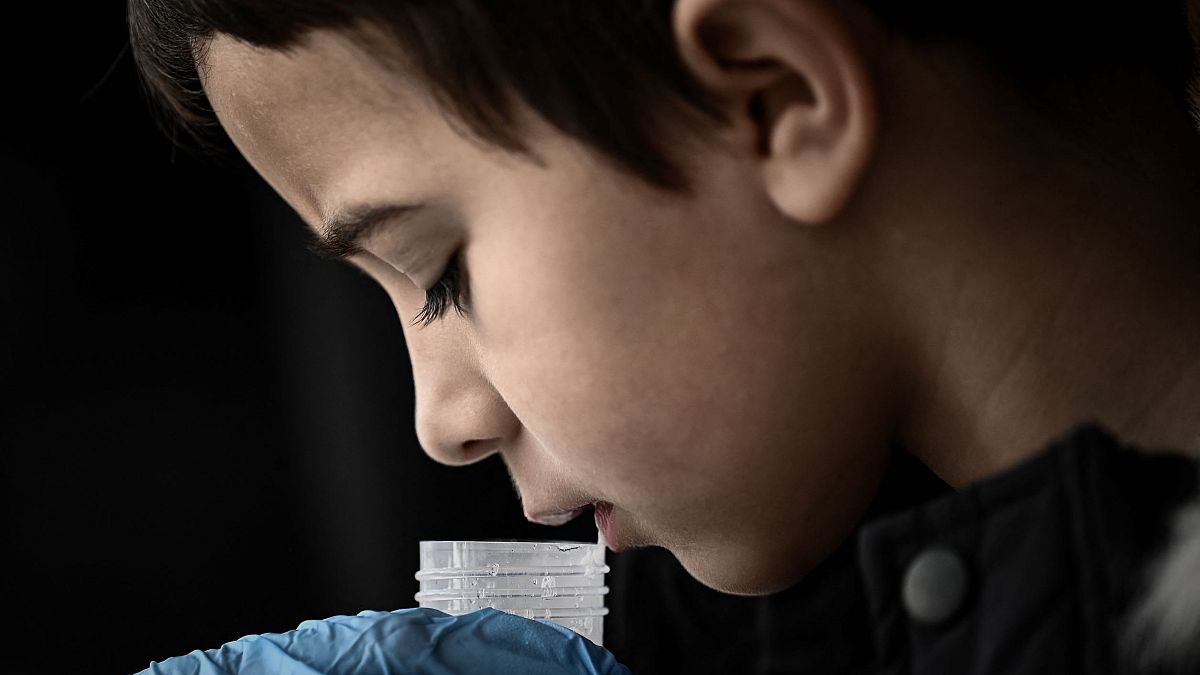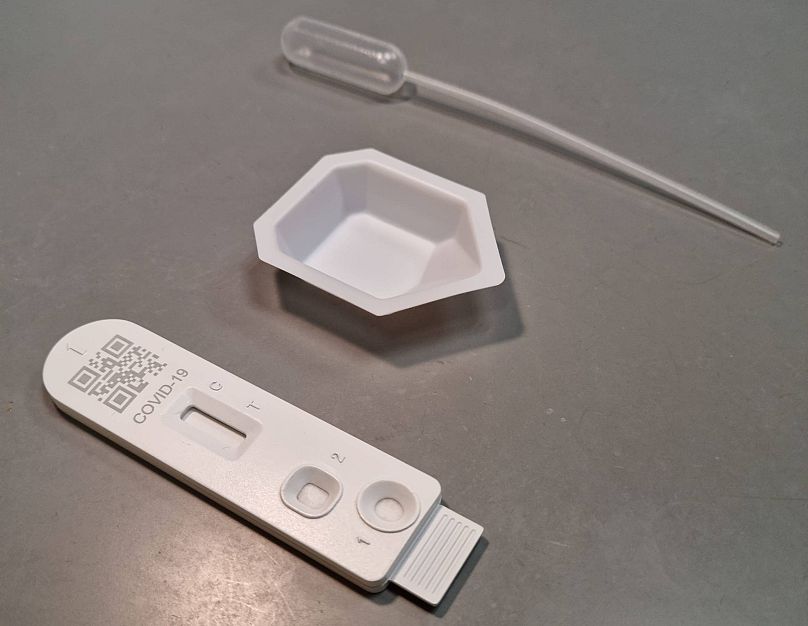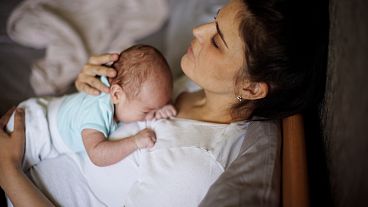The test is not yet in commercial production, but its inventors claim it could make regular testing a part of everyday routines.
An experimental saliva test that can diagnose a COVID-19 infection in minutes is nearly as accurate as gold-standard PCR tests, researchers believe.
The Parallel Amplified Saliva Rapid Point-of-care Test, known as PASPORT, identified the virus with 97 per cent accuracy during trials at a Singapore hospital earlier this year.
Unlike a PCR test, PASPORT does not require laboratory equipment or specialist technicians to produce a result. It also does away with invasive throat and nasal swabs, as it works by applying saliva directly to a testing kit.
"A reliable and painless saliva antigen test that is affordable and convenient to perform would encourage more to be tested, and more frequent testing," said lead inventor Dr Danny Jian Hang Tng, medical officer at Singapore General Hospital's department of infectious diseases.
"This may enable us to manage COVID-19 more effectively not only at the point of care, but also in settings such as airports, conventions and even at home," Tng added.
Highly accurate
Despite being more convenient than swab-based PCR or antigen COVID tests, saliva-based testing has been less widely-used due to concerns over its reliability.
After eating or drinking, the concentration of detectable viral particles in a person's saliva drops sharply, meaning that to get a reliable result a user would either need to fast before testing or perform the test early in the morning, before eating or brushing their teeth.
PASPORT counteracts this by using a two-stage process: First, nanoparticles bind the virus. The second stage of nanoparticles then binds to the first, yielding a stronger signal and making the test more sensitive at finding the virus at any time of day, according to a study on the test published on Monday.
When tested on non-fasting samples from 139 volunteers - 35 with known COVID-19 infections and 19 with other respiratory infections - and compared to PCR tests of swab samples from the back of the nose and throat, PASPORT was 97 per cent accurate at identifying COVID-19 and 91 per cent accurate at ruling it out.
Although the test has not yet entered commercial production, its inventors hope it will eventually make testing for COVID-19 simple enough for people to incorporate into their daily routines.
"Our invention ticks all the boxes for an ideal rapid test: ease of collection of saliva; highly accurate with very low false negative results, making it an invaluable screening tool; and can be done at any time of the day, making it possible to be used at point of care, with reliable authentication," said co-inventor Professor Soo Khee Chee, a senior adviser to Singapore's Duke-NUS medical school.
"With this, we hope that more people will do the test as a personal act of social responsibility before engaging, especially in large-scale events or gatherings," he said.




